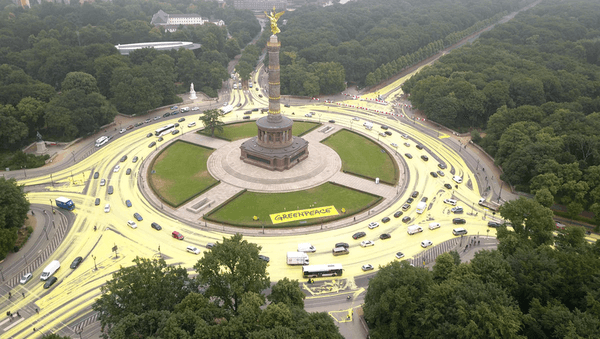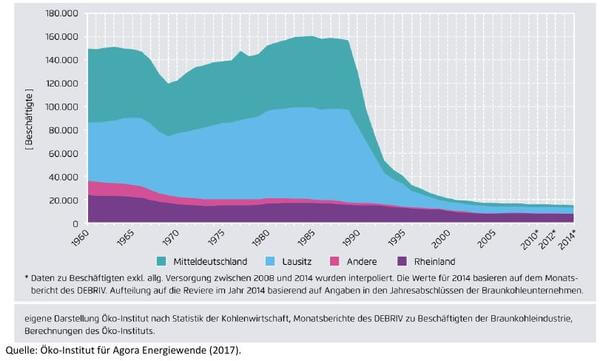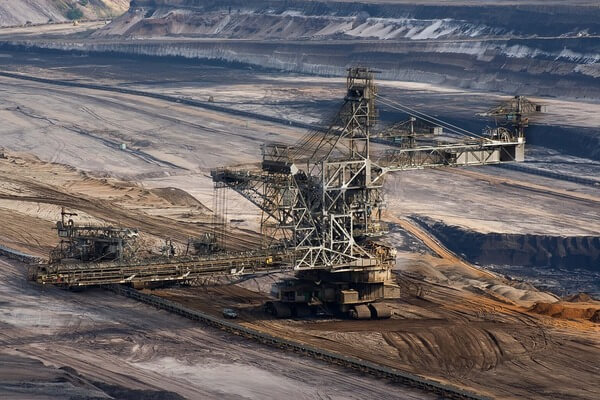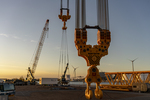News Release from windfair.net
Wind Industry Profile of
Germany Fights Over End of Coal
Rome wasn't built in a day... Following this proverb, the 'Commission for Growth, Structural Change, Employment' - the so-called 'Coal Commission' - met for the first time in Berlin on Tuesday. The interest had already been high even before the beginning of the meeting, because nothing less than the future of our earth is being discussed here. "The German coal commission is critical to ensure the country achieves its climate targets with a #justtransition for workers. Germany should step up action or risk falling behind. #Kohlekommission," tweeted Al Gore, former Vice President of the U.S. and renowned environmentalist.
It is clear that Germany - once a pioneer in the energy transition - will not achieve its climate protection targets for 2020. One of the reasons for this is the ongoing use of lignite. Although renewable energies have made unprecedented progress in recent years, the last necessary push will only come with the end of coal mining in Germany. Too much CO2 is blown into the atmosphere every year in order to achieve really ambitious climate protection targets.
The Commission consists of 24 members under four chairpersons and aims to discuss a way to phasing out coal. The opinion of the federal states in Germany in particular differs widely on this topic, as there are differences of interest. Some states have already invested heavily in the expansion of renewable energies, while others are still focusing on coal mining.
"It is good that the Commission for Growth, Structural Change and Employment is finally starting its work," commented Dr. Simone Peter, President of the German Renewable Energy Federation (BEE) on the launch, which was accompanied by great media interest. "The Commission must now draw up a planable, socially acceptable coal phase-out based on national and international climate targets. This is the only way to achieve climate targets, avoid structural disruptions and create energy-efficient planning and investment security in climate-friendly technologies".
The media interest was further increased by another publicity campaign by Greenpeace: the environmentalists painted the roundabout around the Siegessäule (Victory Column) in Berlin in yellow to create a sun symbol pointing out the advantages of renewable energy.

Greenpeace called for 'Sun instead of Coal' (Image: Greenpeace)
While some media then disrespectfully reported that the paint had been slippery and caused some cyclists to fall, lobbyists elsewhere are already fighting for further attention. Anke Rehlinger, Economics Minister for the federal state of Saarland, announced that she does not want an abrupt end to coal-fired power generation. "Against the background of my experience with the structural change in Saarland, I am concerned that the changes should be socially acceptable and in the sense of social cohesion. This means, among other things, that an abrupt end to coal-fired power generation must not lead to a break," said the SPD politician. In the western state of Saarland, hard coal was formerly mined on a large scale until Germany decided to drop out of hard coal a few years back.
She received support from representatives of the other coal states of Brandenburg, Saxony and North Rhine-Westphalia. Aspects such as security of supply, competitiveness, energy costs for industry and consumers and regional economic consequences for locals must be discussed, demanded Brandenburg's Economics Minister Albrecht Gerber (SPD): "There must be no pre-decisions on an exit date".
His colleague from Saxony also struck the same horn. Saxony's Economics Minister Martin Dulig (SPD) said: "Telling the people in Lusatia to prepare for a phase-out of lignite is mocking. They live in a region that has been undergoing permanent structural change since 1990. They had already experienced mass unemployment when the GDR lignite industry collapsed after the peaceful revolution and the German reunifictaion."
The question arises as to how many jobs are so fiercely disputed here. A study from the previous year, which the Berlin consulting firm Arepo Consult prepared on behalf of the parliamentary group of Bündnis 90/The Greens, provides information on this. Since the German reunification, the number of jobs in lignite has fallen from more than 115,000 to just under 20,000. That is less than 0.07 percent of all employees in the whole country, as the magazine Der Spiegel has traced, among other things.

The image shows the job reductions in lignite mining in the German lignite mining areas over the last 70 years. (Source: Agora Energiewende / Study by Arepco Consult)
Now every lost job is bad business, but at this point another number must also be taken into account: While jobs are being eliminated in coal, the number of people employed in renewable energies is growing continuously. According to the German Renewable Energy Federation (BEE), there are currently about 330,000 people working in this industry.
And there are more figures to come: According to a Greenpeace Energy study presented on Monday, a rapid phase-out of coal could save 27.9 billion euros a year. "The consequential costs of coal-fired power generation means billions of euros every year. The failure to meet the climate protection targets as well as the renewable energy expansion obligation are probably still on top," says Peter.

Lignite mining in Garzweiler, North Rhine-Westphalia (Image: Pixabay)
In addition to electricity production costs, the FÖS experts also recorded the costs arising from climate and health damage as well as from subsidies and government benefits. "The study exposes lignite, which is supposedly so cheap, as one of the most expensive forms of electricity generation," adds Janne Andresen of Greenpeace Energy.
The rapid phase-out of lignite is therefore necessary both for reasons of climate protection and from an economic point of view. "It is now up to the Commission to define the measures for socially responsible restructuring. At the same time, the expansion of renewable energies must be driven forward with special tenders and clear planning steps up to 2030 in order to achieve rapid success", according to the BEE.
- Author:
- Katrin Radtke
- Email:
- press@windfair.net
- Keywords:
- Germany, Coal Commission, coal, climate protection, lignite, reneable energy, federal states























